
Achieving a dazzling smile often requires more than regular brushing, flossing, and periodic check-ups. For those with missing teeth, dental implants offer a fantastic solution. However, have you considered the dental implants cost and how it might impact your decision?
Key Takeaways
- Dental implants are a robust and long-lasting solution for missing teeth, providing comfort, functionality, and aesthetic appeal like natural teeth.
- The cost of dental implants in South Africa can vary significantly, depending on various factors such as the materials used, surgeon’s expertise, geographical location, and complexity of the procedure.
- Multiple teeth implants and full mouth dental implants are more complex procedures and hence, cost more than single tooth implants.
- Alternatives to dental implants, such as dentures and bridges, are available. However, they may not supply the same comfort, stability, or appearance as dental implants, and their cost differs.

What are Dental Implants
Dental implants are feigned tooth roots, usually made of titanium, that supply a permanent base for fixed, replacement teeth. They are designed to fuse with the jawbone over time, offering robust support for the feigned tooth (crown).
Why Dental Implants
Dental implants are an effective, long-lasting solution for missing teeth. Unlike dentures, they offer a permanent fixture to your jawbone, providing a natural look and feel. They boost self-confidence, enhance the ability to eat and speak properly, and improve overall oral health. More people are turning to dental implants as the preferred option to reclaim their smiles and overall well-being.
Benefits of Dental Implants
Dental implants offer several benefits. They closely resemble and function like natural teeth, enhancing aesthetics and functionality. They are durable, with proper care, and can last for many years or even a lifetime. Dental implants also protect healthy bone, help maintain facial structure, and don’t interfere with neighboring teeth.

Improved Oral Health
Losing a tooth can lead to adjacent teeth shifting, causing misalignment and bite issues. Dental implants fill these gaps, restoring alignment and preventing further oral health problems. Unlike traditional bridges, implants don’t require reducing adjacent teeth, preserving their strength and integrity.

Enhanced Appearance
Missing teeth can significantly affect your appearance and self-esteem. Dental implants look and feel like natural teeth, giving you a more youthful and confident smile. They also help prevent bone loss and maintain facial structure, reducing premature aging.

Improved Speech and Eating
Gaps from missing teeth can make it difficult to speak and eat properly. Dental implants offer a stable and secure foundation, making it easier to talk and enjoy your favorite foods without worry.
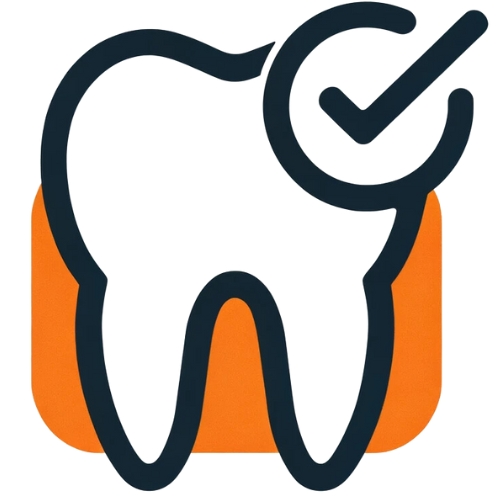
Long-Term Solution
Dental implants are a durable, long-lasting solution for missing teeth. With proper care, they can last a lifetime. Unlike dentures or bridges that need regular adjustments or replacements, implants are designed for stability and permanence.
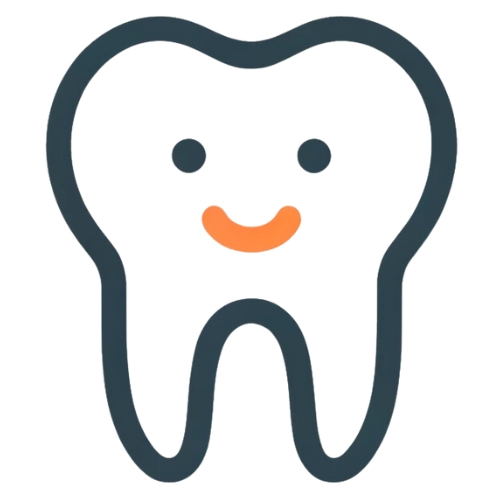
Overall Well-Being
The benefits of dental implants extend beyond physical health. A healthier mouth and a confident smile can boost your self-esteem and reduce stress, positively impacting your social and professional life, leading to greater happiness and fulfillment.
Risks Associated with Dental Implants
Although dental implants have a high success rate, there are some risks involved, including infection at the implant site, injury or damage to surrounding structures, nerve damage, and sinus problems. However, these risks are relatively rare and can be minimized with an experienced surgeon.
Factors Affecting Dental Implants Cost in South Africa
Dental implant cost in South Africa is influenced by several factors, including the material used, the surgeon’s expertise, geographical location, and the complexity of the procedure.
Material Used in Dental Implants
The most common material used for dental implants is titanium due to its durability and compatibility with the human body. The quality of the material directly influences the cost of dental implants.
Surgeon’s Expertise
A surgeon’s expertise and experience play a significant role in the cost. Highly skilled and experienced surgeons usually charge more for their services but can offer better results and minimize potential risks.
Geographical Location
The cost of dental implants can vary depending on the city or region in South Africa due to differences in operational costs, competition, and standard of living.
Complexity of the Procedure
The complexity of the procedure influences the cost. Single-tooth implants are less complex and therefore cheaper than multiple-teeth implants or full-mouth dental implants.
Cost of Single Tooth Implants in South Africa
A single-tooth implant is a procedure for replacing a single missing tooth.
The cost of a single tooth implant in South Africa varies depending on several factors, including the dental practice, materials used, procedure complexity, and individual patient needs. On average, patients can expect the following costs:
- Implant Placement: Approximately R11 000 to R13 000.
- Crown (with components): Around R10 000 to R12 000.
This brings the total estimated cost for a single dental implant to between R21 000 and R25 000.
It’s important to note that these figures can vary. For instance, some clinics may offer implant placements starting from R8 000, depending on the manufacturer and specific circumstances.
Additional factors that can influence the overall cost include:
- Consultation Fees: Initial consultations can range from R800 to R1 600.
- Diagnostic Imaging: Procedures like X-rays or 3D scans may incur extra charges.
- Additional Procedures: Some patients might require bone grafts or other preparatory treatments, adding to the total cost.
Given the variability in pricing and the individualized nature of dental implant procedures, it’s advisable to consult with a qualified dental professional to obtain a personalized treatment plan and accurate cost estimate.
» Find out more: How much does a tummy tuck cost in South Africa?
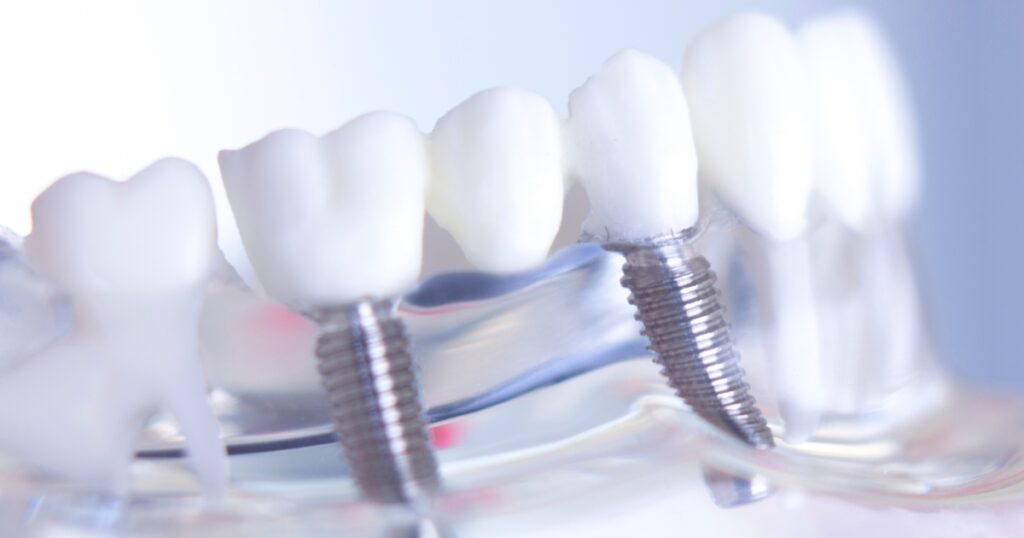
Cost of Multiple Teeth Implants in South Africa
The cost of multiple teeth implants in South Africa varies based on several factors, including the number of implants needed, the type of restoration, procedure complexity, materials used, and the dental practitioner’s expertise.
Cost Estimates:
- Implant Placement: Approximately R11 000 to R13 000 per implant.
- Crown (with components): Around R10 000 to R12 000 per tooth.
For multiple teeth, the total cost depends on the specific treatment plan. For example, replacing three adjacent missing teeth might involve two implants supporting a three-unit bridge, potentially reducing the overall cost compared to placing an individual implant for each missing tooth.
Example:
Replacing three missing teeth might cost:
- 2 implants x ~R12 000 = R24 000
- 3 crowns x ~R11 000 = R33 000
- Total estimated: R57 000
All-on-4 Dental Implants: For patients missing most or all teeth in an arch, the All-on-4 technique offers a full-arch restoration using four strategically placed implants. The cost for this procedure in South Africa typically ranges from R56 000 to R65 000 per arch.
Treatment Options for Multiple Teeth
- Implant-Supported Bridge: If several teeth in a row are missing, dentists often use fewer implants to support multiple crowns, which can lower costs compared to placing individual implants for each tooth.
- Removable Implant-Supported Dentures: For a larger number of missing teeth, this cost-effective solution uses multiple implants to secure a removable denture.
Additional Costs to Consider
- Temporary Restorations: While implants heal, temporary solutions may also add to the total cost.
- Consultation Fees: Usually between R800 and R1 600.
- Diagnostic Imaging (e.g., X-rays, 3D scans): Extra but essential for precise planning.
- Bone Grafting or Sinus Lifts: If there’s not enough bone structure, procedures like grafting can add R5 000 to R20 000 depending on complexity.
Cost of Full Mouth Dental Implants in South Africa
Full mouth dental implants are a premium solution for patients needing to replace all teeth in either the upper jaw, lower jaw, or both. In South Africa, prices vary based on the technique used, the number of implants, materials, and the need for additional procedures like bone grafting.
Treatment Options & Costs
- All-on-4 Implants (Per Arch): Approx. R60 000 to R120 000
Four implants support a full arch of teeth. Popular for its balance between stability and cost. - All-on-6 Implants (Per Arch): Approx. R90 000 to R150 000
Six implants provide additional strength and durability, often recommended for better long-term support. - Full Mouth Restoration (Both Arches): Approx. R180 000 to R300 000
This includes upper and lower arches fully restored with implants and prosthetic teeth.
Additional Costs to Consider
- Consultation & Diagnostic Imaging: Around R800 to R2 500, depending on the clinic.
- Temporary Restorations: Temporary teeth during the healing period may add R5 000 to R15 000.
- Bone Grafting or Sinus Lift (If Needed): Can add R5 000 to R20 000+, depending on complexity.
Given the substantial investment required for full mouth dental implants, it’s advisable to consult with a qualified dental professional. They can provide a personalized treatment plan and detailed cost estimate tailored to your specific needs and circumstances.
Do I Need Dental Implants?
Tooth loss can lead to structural changes in your jawbone, weakening it and increasing the risk of shifting. These shifts can affect your facial appearance and cause difficulties in chewing, speaking, and smiling comfortably. Dental implants provide a solution that closely resembles natural teeth, restoring your confidence in eating, speaking, and smiling. Unlike dentures or bridges, dental implants can last a lifetime with proper care, making them a cost-effective choice for addressing tooth loss.
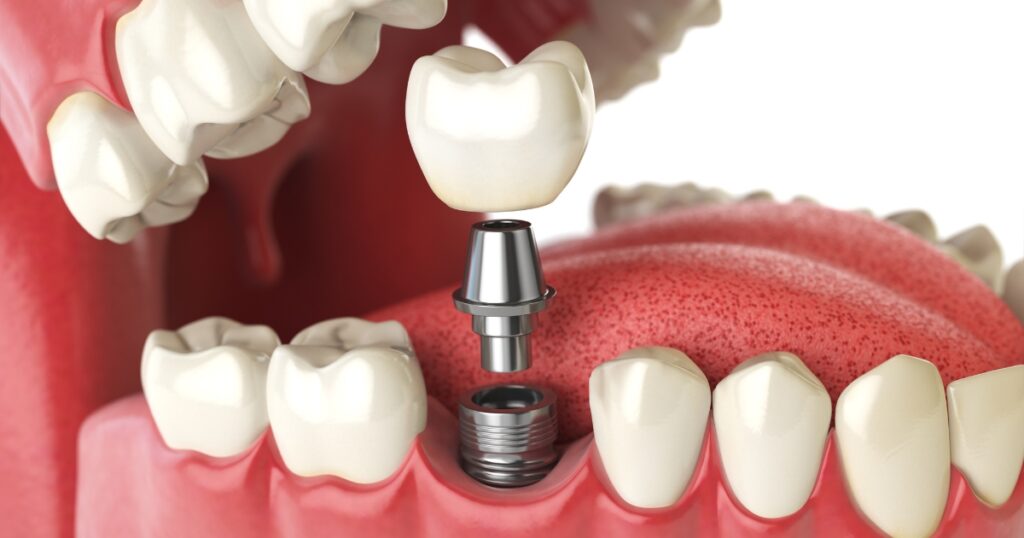
Alternative Options to Dental Implants
Dental implants are not the only option for replacing missing teeth. Dentures and bridges are common alternatives that individuals might consider. Here’s a comparison that provides an overview of three popular dental restoration options: dentures, dental bridges, and dental implants.

Dentures
- Prone to warping and breakage over time
- Require removal for brushing and cleaning
- Tend to shift while eating or speaking
- Average cost: R5 000 to R20 000
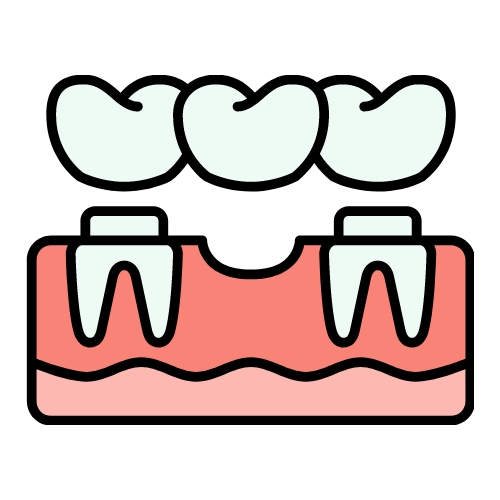
Dental Bridge
- Long-lasting and durable if maintained properly
- Does not require removal for cleaning
- Provides stability while eating or speaking
- Average cost: R8 000 and R15 000
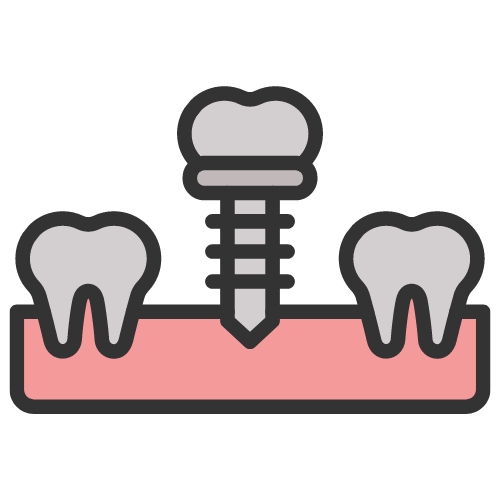
Dental Implants
- Strong, durable, and securely fixed in place like natural teeth
- Require minimal maintenance, similar to regular oral hygiene practices
- Maintain their shape and stability over time
- Average cost: R20 000 to R25 000 per implant
Financial Aid and Insurance for Dental Implants
Dental implants can be a significant investment. However, financial aid and insurance can help manage these costs.
Dental Insurance Coverage
While most dental insurance suppliers in South Africa don’t cover the full cost of dental implants, they may cover a portion of the expense. It is advisable to check with your insurance supplier for detailed coverage information.
Private Health Funds
Private health funds can also supply financial assistance for dental implant procedures. Some funds offer specific packages for dental procedures, including implants.
Payment Plans and Financing Options
Many dental practices in South Africa offer flexible payment plans and financing options to make dental implants more affordable for their patients. These plans can spread the cost over a period, making the treatment more manageable financially.

How to Choose a Good Dental Implant Surgeon in South Africa
Choosing the right dental implant surgeon is vital to the success of your dental implant procedure. Here’s what you need to consider:
Criteria for Choosing a Surgeon
You should select a surgeon with proven expertise and experience in dental implant procedures. Look for professionals with proper qualifications and accreditations, such as the South African Dental Association (SADA). Be sure to check patient reviews and, if possible, ask for before-and-after photos of their previous work.
Top Dental Implant Surgeons in South Africa
South Africa boasts several highly rated dental implant surgeons. Dr Mark Sher, based in Johannesburg, has an international reputation for his work in dental implantology. Similarly, Dr. Costa Pantazis, located in Pretoria, is known for his excellent patient care and high success rates. Costs may vary depending on the surgeon’s reputation, but investing in an experienced professional can pay dividends in terms of results and peace of mind.
About Arcadia Finance
Secure your loan with ease using Arcadia Finance. No application fees, and choose from 19 reputable lenders, all meeting the standards of South Africa’s National Credit Regulator.
Preparing for a Dental Implant Surgery
Before you can receive dental implants, you need to prepare adequately for the procedure. This involves pre-surgery check-ups and understanding post-surgery care.
Pre-surgery Check-up
Before the procedure, your surgeon will conduct a thorough oral examination and medical history review. This may include dental X-rays and 3D images to check the condition of your teeth and jawbone. Based on these findings, the surgeon will customize a treatment plan that suits your needs.
The Dental Implant Procedure
Dental implant treatment generally consists of multiple stages, each playing a vital role in ensuring the durability and success of the final restoration.
Tooth Removal (If Required)
If any existing teeth are damaged and need replacing, they will be removed before implant surgery. This can take place during the same visit as the implant placement or during a separate appointment.
Jawbone Augmentation (If Necessary)
Patients with reduced jawbone density may need jawbone augmentation to create a stable base for the implants. This involves grafting bone material onto the jaw, which typically requires several months to heal before proceeding to the next phase.
Implant Insertion
The key part of the procedure involves the surgical insertion of titanium posts into the jawbone. This is carried out under local anaesthetic for patient comfort. The process includes:
- Creating an incision in the gum to reveal the bone
- Drilling into the bone to insert the titanium post
- Closing the gum over the implant
Local anaesthetic is used during surgery. Following placement, the implant must fuse with the bone in a process called osseointegration, which takes time to complete.
Osseointegration Phase
Following placement, the jawbone begins to heal and grow around the implant in a process known as osseointegration. This period is essential for anchoring the implant securely and can take a few months.
Fitting the Abutment
Once the implant is fully integrated with the jawbone and immediate load wasn’t possible earlier, an abutment is fitted onto the implant.
This is a minor procedure where the abutment, which serves as the connector between the implant and the crown, is secured. If a temporary crown or healing abutment was placed earlier, this step may involve modifying it to accommodate the final crown.
Final Crown Placement
The final step involves placing a custom-designed crown on top of the abutment.
The crown is shaped and shaded to match your existing teeth, ensuring a natural appearance. If a temporary crown was used earlier, it is replaced with the permanent version during this stage.
Post-surgery Care
After the surgery, it’s crucial to maintain good oral hygiene to ensure successful healing. This includes regular brushing, flossing, and rinsing with an antibacterial mouthwash. You’ll also need to follow a soft food diet initially, gradually returning to your normal diet as your mouth heals. Regular follow-ups with your surgeon are also essential to monitor your progress.
Dental implant procedures are intricate and require a significant recovery period. If your jawbone needs restoration through bone grafting, expect a healing time of around 4 months before the implant surgery. After the implant screw is placed, the bone needs time to heal and fuse with the screw. This healing process can take anywhere from 6 weeks to 6 months, depending on your individual circumstances. Generally, your jaw should heal fully within 6-12 months. During the healing period, it’s advisable to avoid crunchy or hard foods like nuts and steak.
Factors Affecting Dental Implant Recovery Time:
- Bone Grafting: If needed, it can extend the recovery period.
- Number of Implants: Receiving multiple implants at once can affect recovery time.
- Adherence to Treatment Plan: Following your dentist’s instructions closely can speed up recovery.
- Individual Health Factors: Conditions such as diabetes and your overall ability to heal play a role.
- Smoking: This can negatively impact healing time.
The recovery time for dental implants varies, but with proper care and attention to your health, you can achieve a successful and lasting result.
Conclusion
Dental implants are a significant investment in your oral health and well-being, so it’s crucial to understand all aspects before you decide. If you’re considering this procedure, ensure you select a reputable surgeon, understand all the costs involved, and prepare for the procedure accordingly.
Frequently Asked Questions
When properly cared for, dental implants can last many years, often for a lifetime.
Dental implant surgery is typically performed under anesthesia, so you should not feel pain during the procedure. Some discomfort is normal after the surgery, but this can be managed with prescribed pain medication.
Certain cases may qualify for “Same Day Implants” or “Immediate Load Implants.” However, traditional dental implants typically require several months to ensure proper healing and fusion of the implant to the bone.
Caring for your dental implants involves maintaining good oral hygiene practices, including brushing, flossing, and regular dental check-ups.
Not all dentists offer dental implants. You should seek a dental surgeon or a prosthodontist with special training, qualifications, and experience in implant dentistry.
Fast, uncomplicated, and trustworthy loan comparisons
At Arcadia Finance, you can compare loan offers from multiple lenders with no obligation and free of charge. Get a clear overview of your options and choose the best deal for you.
Fill out our form today to easily compare interest rates from 19 banks and find the right loan for you.





